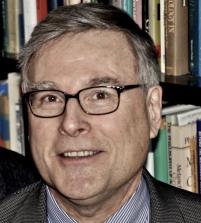
On Zealous and Unrepentant Times
A Call to Self-Reflection amidst a Dangerous Devotion
Insomuch that it may truly be said, pride, covetousness, ambition, revenge, have in all parts of the world slain their thousands; but zeal its ten thousands . . . But is it not possible to distinguish right zeal from wrong? Undoubtedly it is possible. But it is difficult—such is the deceitfulness of the human heart! So skillfully do the passions justify themselves.
—John Wesley, Sermon 92, “On Zeal”
The casual observer of human history cannot miss the ways in which raging passions drive people, especially men, into the madness of slaughter and death, hell-bent on the justice of their cause. Zeal has claimed its ten thousands, as John Wesley put it above. But in our age of the Shoah, Nagasaki and Hiroshima, the Vietnam war, the Chechen conflict, Rwandan genocide, chemical warfare, global pandemic, and police killings (just to name a few!), the numbers have multiplied over and over again. This nation sees people marching through cities rightly protesting for racial justice while others are armed to the teeth sure of the righteousness of their cause, whether they call it QAnon or something else. Most recently, the grief at the death of Justice Ruth Bader Ginsburg has surely given rise to many passions besides mourning, as the left and the right prepare to fight for her seat on the Supreme Court. Is this a sighting of religion?
The ancient Greeks thought that “zeal” was one of the Furies, goddesses of vengeance, who could and would overcome people with a zest for the death of those thought to deserve it. In the Hebrew Scriptures we read of the first slaughter: "And the Lord said unto Cain, Why art thou wroth? and why is thy countenance fallen? If thou doest well, shalt thou not be accepted? and if thou doest not well, sin lieth at the door. And unto thee shall be his desire, and thou shalt rule over him." (Gen 4:6-7, KJV).[1] Call it mob rule or enthusiasm or mass hysteria, zeal can swoop in and animate people with hatred and bloodlust: flags on boats and pickup trucks; banners of one’s cause; marches and rallies, conspiracy theories. Sometimes we have to search the heart and its passions when they become manifest in cultural forms. It is, then, time to reconsider zeal. And in this Jewish holy season running from Rosh Hashanah to Yom Kippur, it is also right to reflect upon the unrepentant mood of the day, so “skillfully do the passions justify themselves.” Let’s start with thoughts about the causes of zeal, then its critiques, and, finally, repentance.
According to Lexico, powered by Oxford Dictionary, zeal is “Great energy or enthusiasm in pursuit of a cause or an objective.”[2] It entered English usage via ecclesiastic Latin for the Greek, zēlos. Wesley, and others, found biblical warrant for a positive assessment of zeal in Gal. 4:18: "But it is good to be zealously affected always in a good thing...." It is found many times in the Hebrew Scriptures and the Christian Bible. Interestingly, the Latin zelosus saw an especial prominence in the 16th century, a period of profound upheavals: the Protestant Reformation, Henry VIII breaking from Rome, the reestablished Papal Inquisition, Turks conquering Egypt, and conquests in the “New World” by the Spanish. That is quite a legacy! What can cause such great energy and blinding devotion to a religious and political objective?
The question of the cause of zeal has been debated at least since the 17th century onward, if not before. Does “zeal” arise by artifice, and so in cultural forms that flow into the heart? Or does it spring from heated natural passions? Is zeal an ecstasis, an ecstasy, taking the self out of and beyond itself, or does it enclose the self on itself; or, perhaps, is it both? The Greeks and Hebrews thought of the source of zeal as somehow “external,” while many moderns typically sought it inwardly. The denigrators of "zealous" Puritans, Anabaptists, and, later, Wesleyan Methodists, cited any number of causes —some natural, others cultural—as the sources of that zeal: mental “heat,” divine intervention, ignorance, a drive for esteem, melancholy, deception, and sexual energy.[3] Not surprisingly, thinkers like Wesley had to defend the “enthusiasm” of their followers by clarifying that true zeal is love of God and of neighbor, and not wanton passion. Certainly the greatest early work in America on religious psychology, Jonathan Edwards’ Religious Affections, written during the enthusiasm of the Great Awakening, tried to sort out these matters.[4] And Edwards, like Wesley, wanted to establish criteria for judging false from true religious affections, agreeing that no supposed love of God can violate the obligation to care for all people. Duties not to harm and in fact to aid others put restrictions on what can claim to be true religious affections.[5]
The issue that sparked searing criticism was when zeal motivated political action among English Puritans as well as the shunning and stigmatizing of “sinners.” Remember The Scarlet Letter or Jonathan Swift’s A Tale of a Tub. Social Criticism can take many forms, but zeal was often the target of satirists. What Swift and others got right, it seems to me, is that zeal, whatever its causes, purports to motivate people to realize the highest ideals—love of country, love of God—but actually debases life in slaughter (crusades and genocide) and self-righteousness parading as moral purity in defense of the nation (Q-Anon).
Such are some of the causes and criticisms of zeal. Frighteningly, in our time people fan the flames of passion and assume their zeal is justified. Politicians, preachers, and even our comics and satirists, are skillfully assured of the rightness of their cause. Few look inward to assess their own hearts or even to the consequences of their actions. It has become apparent that many people are unwilling or unable to repent of the legacy of slavery, the brutalization of Native Americans, and the many atrocities done with a zeal for God and country.
The days between Rosh Hashanah and Yom Kippur, the coming Christian season of Lent, Muslim’s repenting during Ramadan: each of these traditions, not to mention Buddhism and many others as well, urge people to probe their hearts and its sins, including wrongful zeal. A nation, a people, can also question their zeal. Lincoln did so in his Second Inaugural. In this respect, our overly zealous and unrepentant culture is really a sighting of the absence, and not presence, of true religion. As another president, John Adams, put it, “Facts are stubborn things; and whatever may be our wishes, our inclinations, or the dictates of our passion, they cannot alter the state of facts and evidence.” [6] When a zeal for what is true is lost among a people and the genuine work for justice fades into slogans, violence will surely follow, smug in the rightness of its cause and readily robed in piety.
[1] I have use the English text that Wesley’s audience would have known, the 1611 King James Version, although he had Greek at his command as well.
[2] https://www.lexico.com/en/definition/zeal, accessed 9/8/2020 at 5:35pm.
[3] C. M. Webster, “Swift and Some Earlier Satirists of Puritan Enthusiasm” in PMLA (Dec., 1933, 48:4), 1141-1153,downloaded JSTOR, 9/7/2020 at 8:21 pm.
[4] One could go back in time and explore Robert Burton’s Anatomy of Melancholy (1621) as well as other 14th- and 15th-century thinkers. See also Susan Schreiner, Are You Alone Wise? The Search for Certainty in the Early Modern Period (Oxford, 2011).
[5] Wesley and Edwards stand in a long line of Protestant thinkers who insisted that the demands of non- maleficence must be coupled to duties of benevolence towards others.
[6] From his courtroom defense of the British Soldiers who fired into the crowd in the 1770 Boston Massacre: https://founders.archives.gov/documents/Adams/05-03-02-0001-0004-0016#LJA03d031n1-ptr, accessed 9/25/2020 at 4:52pm.
Photo courtesy of Contemporary Jewish Museum.
Sightings is edited by Daniel Owings, a PhD Candidate in Theology at the Divinity School. Sign up here to receive Sightings via email. You can also follow us on Facebook and Twitter. The views and opinions expressed in this article are those of the author and do not necessarily reflect the position of the Marty Center or its editor.


